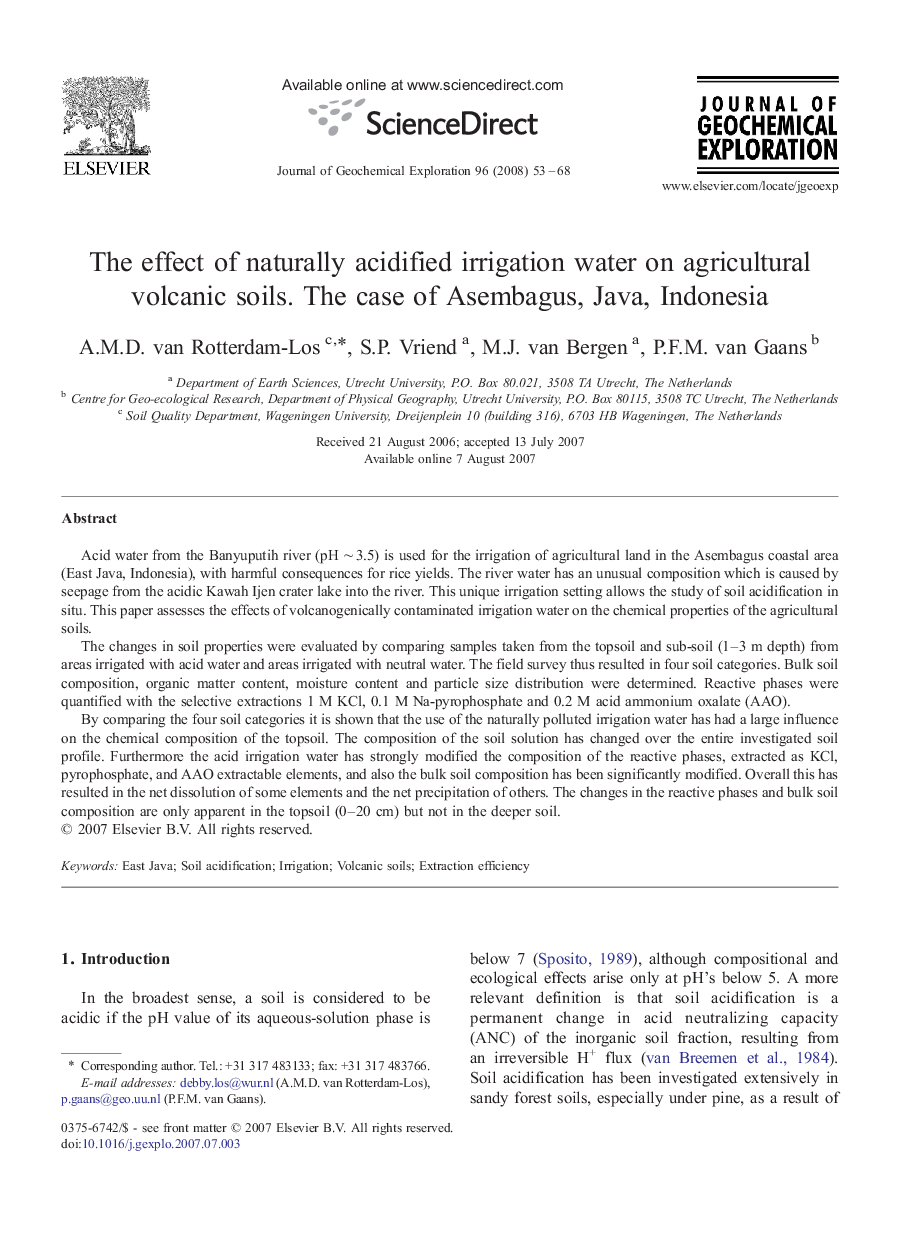| Article ID | Journal | Published Year | Pages | File Type |
|---|---|---|---|---|
| 4458334 | Journal of Geochemical Exploration | 2008 | 16 Pages |
Acid water from the Banyuputih river (pH ∼ 3.5) is used for the irrigation of agricultural land in the Asembagus coastal area (East Java, Indonesia), with harmful consequences for rice yields. The river water has an unusual composition which is caused by seepage from the acidic Kawah Ijen crater lake into the river. This unique irrigation setting allows the study of soil acidification in situ. This paper assesses the effects of volcanogenically contaminated irrigation water on the chemical properties of the agricultural soils.The changes in soil properties were evaluated by comparing samples taken from the topsoil and sub-soil (1–3 m depth) from areas irrigated with acid water and areas irrigated with neutral water. The field survey thus resulted in four soil categories. Bulk soil composition, organic matter content, moisture content and particle size distribution were determined. Reactive phases were quantified with the selective extractions 1 M KCl, 0.1 M Na-pyrophosphate and 0.2 M acid ammonium oxalate (AAO).By comparing the four soil categories it is shown that the use of the naturally polluted irrigation water has had a large influence on the chemical composition of the topsoil. The composition of the soil solution has changed over the entire investigated soil profile. Furthermore the acid irrigation water has strongly modified the composition of the reactive phases, extracted as KCl, pyrophosphate, and AAO extractable elements, and also the bulk soil composition has been significantly modified. Overall this has resulted in the net dissolution of some elements and the net precipitation of others. The changes in the reactive phases and bulk soil composition are only apparent in the topsoil (0–20 cm) but not in the deeper soil.
